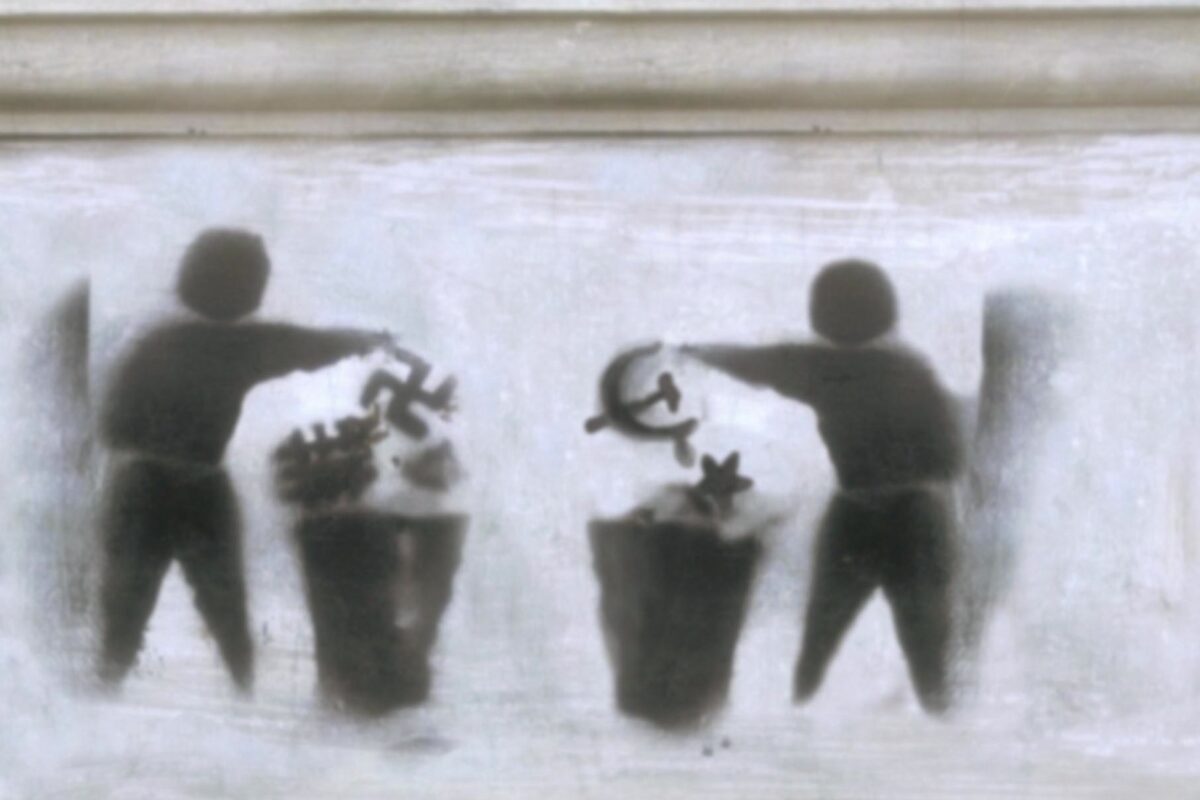He built the foundation for an entire musical genre so beloved by its fans that it has taken on many of the characteristics of a religion. His show The Osbournes established the template which created, for worse or for worse, reality TV as we know it. He urinated on the Alamo resulting in a decade-long ban from San Antonio, snorted ants up his nose, and, intoxicated beyond belief, “mistakenly” bit the heads off of two doves which he had intended to dramatically release during a meeting with record label executives. He left us with such memorable quotes as “I am Burrito Man” and “Who the fuck is Justin Bieber?”. He was one of the world’s most beloved performers whose influence transcends genres and styles. After years of struggling with Parkinson’s disease, after surviving a quad accident, and after decades of substance abuse, Ozzy Osbourne, the Prince of Darkness, has made his last bow sober and surrounded by love. His funeral procession was accompanied by tens of thousands of devoted fans crying “Ozzy Ozzy Ozzy oi oi oi!” through the streets of Birmingham. Ozzy’s final performance raised over 190 million dollars—to be split between Birmingham Children’s Hospital, Acorn’s Children’s Hospice, and Cure Parkinson’s—surpassing every other charity concert in history, including 1985’s Live Aid—a truly rock’n’roll exit to the man who exemplified the rock’n’roll life.
John Michael Osbourne was born to a working-class family in Birmingham, England on 3 December 1948. Raised in an area where the only possible futures seemed to reside in factory labor, “Ozzy” met bass-player Terence “Geezer” Butler after posting an ad in a local music shop (“Ozzy Zig Needs a Gig”). The two musicians eventually united with guitar player Tony Iommi and drummer Bill Ward, forming the Polka Tulk Blues Band, then the band Earth, before finally settling on the name “Black Sabbath”. Inspired by the effect horror films had on people, the band crafted an image that was ominous and frightening, with Ozzy bringing a fitting dash of comedy into the mix.
Known for his showmanship and stage antics—from hoisting the late-great guitar hero Randy Rhoads into the air mid-solo to the silly but somehow contagiously energetic jumping jacks and clapping of his later years—an Ozzy concert was a spectacle indeed. A man of contradictions, Ozzy Osbourne always seemed comically out of place surrounded by the wealth and privilege he enjoyed for much of his adult life, resulting in hilarious moments like this gem where he reflects on his working-class character and determination to do his own chores from his Beverly Hills mansion while being served meals that look like they should be in an art gallery instead of on a plate.
Sabbath, Bloody Sabbath!
Formed by Osbourne, Iommi, Butler, and Ward, Black Sabbath laid the foundation for heavy metal music while surrounded by the tense and constant beats of Birmingham’s industrial machinery. In fact, industry played more than a symbolic role in the development of Black Sabbath’s sound—guitarist Tony Iommi lost bits of his fingers in an accident on his last day of work at a sheet metal factory. Persevering with a set of plastic fingertips he made for himself, the new difficulties of playing led Iommi to detune his guitar, slackening the strings, resulting in a much darker tone. Combine this with Bill Ward’s swinging drumbeats, Geezer Butler’s bluesy baselines and ominous lyrics, and Ozzy Osbourne’s melodies and incredible vocals, which managed to haunt even as they soared, and you have the perfect recipe for a heavy metal origin story.
Black Sabbath released a total of nineteen studio albums with numerous lineup changes between 1970 and 2013, though it is the original Ozzy-fronted lineup that produced the band’s most successful work. The band’s self-titled debut was a groundbreaking mixture of horror-inspired blues and rock’n’roll. The artwork on Black Sabbath perfectly captures the mood of the album, with a menacing figure gazing directly at you against a busy and unsettling background. The title track opens to the sound of rain and is premised on a tritone, the so-called “devil’s interval”. Osbourne’s haunting voice enters with fearful questions:
“What is this that stands before me?
Figure in black which points at me
Turn ‘round quick and start to run
Find out I’m the chosen one
Oh no!”
Heavy metal was born.
The band’s sophomore album Paranoid featured what would become some of the band’s most famous songs, the title track becoming a radio hit. Fueled by the growing sentiment against the invasion of Vietnam, “War Pigs” continues to serve as a powerful protest anthem and has been covered by artists ranging from Faith No More to T-Pain. Then there is “Iron Man” (no, not the Marvel character), with its thundering riff that, to this day, is often the first thing new guitarists learn to play (making it the bane of music store employees around the world).
The Ozzy-fronted Sabbath continued to release a number of now classic albums including Master of Reality, Vol. 4, and Sabbath Bloody Sabbath. However, after the release of the band’s eighth album Never Say Die! internal frustrations, drug abuse, and accusations against Osbourne’s notorious unreliability reached a pinnacle. Osbourne was kicked out of the band and replaced by Ronnie James Dio, who would eventually reform the band as Heaven and Hell.
Ozzy Zig needs a gig (again)
Following his dismissal from Black Sabbath and a stint of coke-fueled melancholy, Osbourne got back on the horse and began putting together a band for his solo debut with the assistance of the notorious music manager Don Arden and his daughter Sharon Arden (now Sharon Osbourne). The album Blizzard of Ozz featured the talents of Don Airey on keyboards, Bob Daisley on bass, Lee Kerslake on drums, and Quiet Riot’s Randy Rhoads on guitar. Daisley’s excellent writing and Rhoads’ blistering guitar skills, which injected an element of high-speed “classical” music into Osbourne’s blues-rock style, paved the way for success. Blizzard of Ozz would eventually be certified 5x platinum in the United States and contained several of Osbourne’s greatest hits—what rock playlist is complete without “Crazy Train”?
Osbourne’s solo success continued with the followup album Diary of a Madman and its creeping but mesmerizing title-track, alongside more bombastic hits like “Over the Mountain” and “Flying High Again”. Then tragedy struck. In 1982 the band’s tour bus driver, Andrew Aycock, offered to take Rhoads and Rachel Youngblood (who was in charge of make-up and costumes) on a flight in a small airplane. Behaving recklessly, Aycock clipped the tour bus with the wing of the aircraft, where Ozzy and Sharon were then sleeping, breaking the plane’s wing and leading to a fatal crash that killed Aycock, Rhoads, and Youngblood. Rhoads’ tenure with Osbourne, his display of musical genius and his charismatic showmanship which meshed so perfectly with Osbourne’s stage persona, have become permanently sewn into the tapestry of heavy metal mythology.
A long farewell
Those who have been following Osbourne’s musical career for a long time have likely seen the musician’s “last” show a number of times. From the “No More Tours” tour in 1992 (undone by the 1995 “Retirement Sucks Tour”) to the comically titled “No More Tours II” in 2018, plus Black Sabbaths’ “The End” tour in 2016-17 (following the band’s release of 13, the first album with Osbourne since 1978) one might be forgiven for thinking that Ozzy Osbourne would go on playing forever. And in a way, he did—living up to the principles of heavy metal excess, Ozzy quite literally rocked right to the end.
Osbourne’s final show, the “Back to the Beginning” charity event in Birmingham, was an homage to heavy metal history and Ozzy’s defining role in it. The event brought together a veritable “who’s who” of rock royalty. Hosted by the guitar legend and socialist activist Tom Morello, band after band took the stage showcasing the development of the genre pioneered by Osbourne and his Black Sabbath bandmates over five decades ago. Each band was afforded time to play some of their own hits plus covers of Ozzy or Black Sabbath songs (Halestorm’s rendition of “Perry Mason” and Slayer’s performance of “Wicked World” were notable highlights). Metallica’s James Hetfield praised metal’s founding fathers, stating “without Sabbath there would be no Metallica” during a set which saw metal’s largest act dish out some Black Sabbath deep cuts.
Osbourne took to the stage on a throne and, despite his physical impairments, still managed to exude a tremendous amount of energy and emotion from his seated position. Seeming to tear up during his final performance of “Mama I’m Coming Home”, Ozzy thanked the audience proclaiming “you have no idea how I feel, thank you from the bottom of my heart”. It was an incredible farewell, and before the fun got underway Ozzy was even able to witness Slipknot’s Sid Wilson make a marriage proposal to his daughter Kelly Osbourne (in typical fashion, Ozzy didn’t miss a beat, joking “Fuck off! You’re not marrying my daughter!”). After his passing, Sabbath cofounder Tony Iommi acknowledged the mounting challenges to Ozzy’s health and remarked that Ozzy likely “just held out to do that show”, determined to say one final goodbye.
A career of controversies
Unfortunately, the “Back to the Beginning” event was not without controversy. A recorded appearance by Marilyn Manson, the infamous shock-rocker embroiled in a number of sexual assault and abuse allegations, brought boos from the otherwise jubilant crowd. Further booing emerged with the appearance of Disturbed frontman David Draiman, a notorious Zionist who has been photographed signing Israeli artillery shells as that state continues its genocidal campaign against the people of Palestine. A number of pro-Zionist writers have attempted to claim Ozzy himself as one of their own following the singer’s death. An op-ed by one Nicole Lampert celebrates Ozzy’s “defense of Israel” on the grounds that he has twice performed there and that his wife Sharon has regurgitated Zionist talking points, for example through her ridiculous criticism of Kneecap.
Ozzy sometimes remarked on his distance from political matters, a privilege for someone whose luxurious life was largely managed for him. While it doesn’t seem sufficient to accuse Ozzy of holding any specific beliefs purely due to Sharon’s remarks (and while the conflation of Ozzy’s and Sharon’s actions has been a frequent source of sexist accusations within the discourse of the metal community), it is also insufficient to use his notorious irresponsibility as a shield from criticism. Sharon arrogantly dismissed criticism over Ozzy’s playing in Israel on the grounds that “we play where we want to play”. Equally frustrating is the presence of Ozzy and Sharon’s signatures on a letter demanding an inquiry into the BBC over a documentary it released on Gaza, alleging “bias against Israel”. Those attempting to claim Ozzy as a “fierce Zionist” through appeals to the beliefs of his wife seem to reject both the agency and responsibility of both individuals. Whatever Ozzy’s views might have been, it is sad that his actions were such that they provide Zionists with any claims at all—and hiding behind Sharon is no excuse.
Moreover, many aspects of the “rock ‘n roll” lifestyle were notoriously problematic and Ozzy was emblematic of many of them throughout his long career. Sadly, it is still common for fans of the genre to brush many of its worst excesses under the carpet as “just how it was”. Arguably the darkest chapter in Osbourne’s life was the attempted murder of Sharon after the Moscow Music Peace Festival in 1989. Having completely lost his mind and any semblance of self-control to the various substances he was abusing (“God only knows what combination he was on”, recalled Sharon) he allegedly stated “we’ve come to a decision that you’ve got to die” and attempted to strangle his wife, who was able to fend him off and signal for help. He woke the next morning in jail, completely oblivious to what he had done. Sharon dropped the legal charges against him with the insistence that he cease drinking—her dedication to rehabilitating her husband probably saved his life.
Ozzy’s legacy
Throughout his life, Ozzy played a huge role in launching the careers of many other musicians—Mötley Crüe is perhaps the biggest example. Then, of course, there was the legendary Ozzfest which Ozzy and Sharon kicked off in 1996 and continued more or less annually until 2018. The festival generally had a main stage, headlined by either Ozzy or Black Sabbath, with support from a number of heavy metal heavyweights like Slayer and System of a Down. Then there was a second stage to provide space for smaller bands to carve out a name for themselves. This proved fortuitous for a largely unknown nine-member ensemble out of Iowa during Ozzfest ‘99: Slipknot is now one of the most successful metal bands of all time. That is Ozzy’s legacy—not just the invention of an entire genre, but his love of shining the spotlight on others, ensuring that the party he started back in ‘68 never stops.
That party is now a global phenomenon. From its roots in Britain’s industrial heartland, metal has spread around the world and, as it developed, bands began to integrate the genre’s basic elements with their own cultural influences. Across Latin America, the rebellious nature of the music found new life as a way to express outrage at dictatorial regimes and the intense feelings of alienation shared by so many. Brazil’s Sepultura, arguably the most prominent band emerging from such circumstances, came from an impoverished working-class background and grew to become one of heavy metal’s most successful acts. The band formed the same day that founding member Max Cavalera heard Black Sabbath’s 1972 release, Vol. 4, for the first time.
Metal has also been the subject of academic inquiry—a collection of scholarly work on metal history titled Metal Rules the Globe is full of interesting analyses about the genre’s development in China, Indonesia, Japan, Norway, Singapore, and more. The genre Ozzy helped birth has been analyzed in a number of ways regarding its relationship to class, gender, power, mysticism, and nationalism. It has also exploded into countless metal subgenres (and sub-subgenres, and sub-sub-subgenres, like “Polish Blackened Death Metal” which under no circumstances should be confused with “Atmospheric Black Metal”, “Swedish Melodic Death Metal”, “Speed Metal”, “Symphonic Metal”, or “Stoner Metal”). Ozzy’s legacy has evolved in so many directions that metal-loving anthropologist Sam Dunn produced several documentary series cataloguing the ever-evolving “Heavy Metal Family Tree”.
You can’t kill rock’n’roll
One of Ozzy’s most charming characteristics was his unassuming simplicity and the fact that, despite being a bona fide rock’n’roll god, he never stopped being a fan. Watching him onstage, as his health deteriorated over the years, he simply radiated energy and passion for what he was doing. When he could no longer run around the stage he began to run in place, doing jumping jacks and clapping his hands. When he was confined to a throne for his final performance, struggling with Parkinson’s disease and unable to hoist himself up, he rocked back and forth, tapping, stomping, anything he could manage. Whether one looks at Ozzy’s earliest performances or those of his later years, it is always clear that no matter how much fun the audience was having—he was having even more.
Rest in Power, John Michael Osbourne.
Brandon Warner is a Marxist activist with a background in philosophy and sociology. He is based in Berlin.




